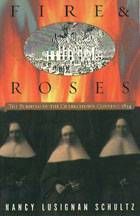Feature Essay

Catholics in a Strange Land
Living the Tolerance Dream
Want to feel grateful? Read about the experience of nineteenth-century American Catholics.
Consider this ten-year period: In 1834, Samuel F.B. Morse, of Morse Code fame, published his Catholic-hating Foreign Conspiracy against the Liberties of the United States. A New England mob attacked a Catholic orphanage in Charlestown, expelling the nuns and girls, then ransacking, robbing and torching it with impunity. In 1836, the wholly-fraudulent Awful Disclosures of the Hotel Dieu Nunnery in Montreal by "Maria Monk" purported to reveal the pornographic conduct and child-killing ways of nuns in Montreal; the book sold briskly and Maria Monk became a lecture circuit fixture. In 1843, the organization that would eventually become the American Party took shape with the aim of excluding Catholics from public life. In 1844, a three-day anti-Catholic riot shook Philadelphia, destroying several churches and injuring or killing sixty-three people.
It's safe to say American Catholics weren't well liked back then. The ten years described above were particularly bad, but it's not like things got a lot better. The bigotry and antagonism persisted. It's no coincidence that anti-Catholic bigotry was one of the pillars of Ku Klux Klan hatred in the early twentieth century.
Modern America is still a dangerous place for Catholics, but for a different reason: it's a carrier of mortal spiritual diseases, from wealth obsession to erotica. But I'll opt for today's situation over that of nineteenth-century Catholics. As a modern American Catholic, my soul is at stake, yes, but I'm far (far) less likely to get physically harassed, denied employment or lose my membership at the Elks because of my religion.

Do you think I sound superficial, placing more value on material comfort and security than my soul? Maybe I am, but think about this: America is the land of intense tolerance. America tolerates–and even extends a measure of respect to–nature-worshipping Wiccans, Satanists and practitioners of voodoo.
As a Catholic, you're mild compared to such fringe groups. You can be strongly, fervently, even–heaven forbid–devoutly Catholic and people won't mind. They might think you're unusual, but that's a good thing. Unusual things today are tolerated, often admired. If a person criticizes the unusual, he's considered close-minded, which is like being an HIV-positive surgeon in an operating room.
The result: You can be as rabidly Catholic as you want and virtually no one will think less of you because of it. You can be seen attending Mass every weekday morning, and people will still buy your products or seek your professional services. You can ask your boss if you can leave 30 minutes every morning to go to Mass and make it up at lunch. He'll want to accommodate you because (i) he is in fact highly tolerant, or (ii) he doesn't want to look like that HIV-positive surgeon.
If perhaps a few people ostracize you because of your faith, they'd never admit it or tell others. Do you really think any person (outside of a few fundamentalist and Baptist strongholds) wants to be heard saying, "Don't go to that store. The owner is a Catholic"?
In this era of extreme tolerance, you can be as intensely Catholic as you want and suffer no–direct or indirect, explicit or implicit–consequences. No one will lynch, taunt or even squint at you. You can do what you prayerfully want and no one will object. That's why I opt for today's America, even with its rampant spiritual diseases, over the America of 100 to 200 years ago.
It's a great time and place to be a devout Catholic. Of course, you need a lot of inner drive. The institutional support isn't there: public schools aren't friendly toward the Catholic worldview, priests often don't show up for confession, mass media distorts our faith. But if you spend a little time, you can find pockets of holiness: good priests, Eucharistic Adoration, quiet churches . . . and no one will bother you. If that's your thing–if holiness is your thing–most people will respect it.
And if someone doesn't and speaks poorly because of your religious fervor, other people will think he's a bigot and that you're a victim.
It's a good state of affairs. Don't lose sight of it.
